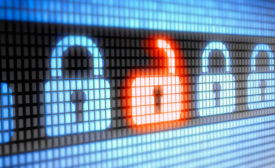Cybersecurity News
Measuring the CISO's Evolving Sphere of Influence
They are the executives who control information security issues in an enterprise and are responsible for securing anything related to data.
January 6, 2014
Updating Cyber Threats on the Radar for 2014
Small business doesn’t necessarily mean small data.
January 6, 2014
How to Reduce the Insider Cyber Threat
To best protect your company against internal abuse, it is helpful to understand the nature of the threat and to consider applying risk-based approaches to address the problem.
January 6, 2014
Sign-up to receive top management & result-driven techniques in the industry.
Join over 20,000+ industry leaders who receive our premium content.
SIGN UP TODAY!Copyright ©2025. All Rights Reserved BNP Media.
Design, CMS, Hosting & Web Development :: ePublishing







